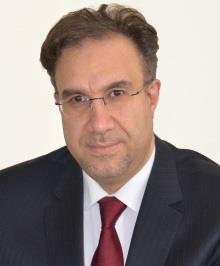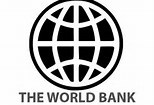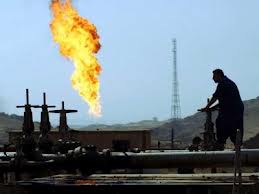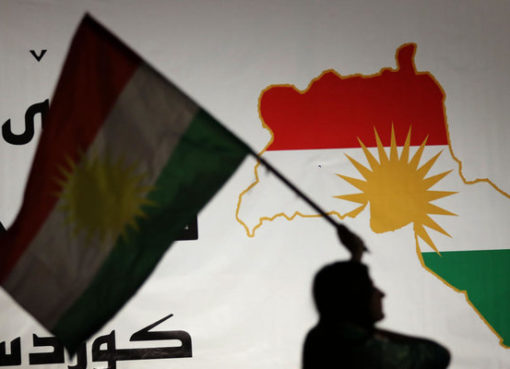A capital city in Iraq is in turmoil. The government has been hit hard by collapsing oil prices and is under pressure from an array of activist groups to reveal the fate of missing oil revenues, and be far more transparent.
At the helm is a man many have long accused of intimidation and close links to one of the worst dictators of modern times. This government is seen by some as a primary ally in the war against the so called Islamic State (ISIS or Daesh).
In this troubled region, protesters clamour for change on the streets of major towns, with recent fatalities as the security services (including a secretive unit run by the ruling party) try to keep order. Amnesty International, Reporters without Borders and Human Rights Watch have all noted the intimidation of political opposition. Journalists have even been arrested and TV stations have been closed.
On the battlefields, an existential battle against genocidal terrorists is hampered by factionalism, with units failing to work together against the fanatical enemy, with the result that the front line has frozen in some places.
In parliament there is deadlock, while international oil companies complain they are owed vast sums of money. A leader clings to power, two years beyond his constitutional mandate, as national bankruptcy looms. Surely the above description refers to the beleaguered government in Baghdad?
A tale of two cities
Those who herald the story of astounding Kurdish success, like Thomas Friedman, should be shocked to find that the above description accurately relates to the government in Erbil, capital of the semi-autonomous Kurdish Region of Iraq (KRI).
In fact, the last week of Kurdish turmoil has made politics in Baghdad seem jovial by comparison. For example, despite popular protests, Prime Minister Abadi’s main Shi’a political rivals Hadi al-Ameri, Nouri al-Maliki and Qais al Khazali all concede that the PM will lead the anti-ISIS war effort, and even (to varying extents) accept his relations with the US, provided Iran has a seat at the table (interestingly, Kurdish parties have long maintained close ties to Iran, which seems to have gone strangely un-noticed in Washington.)
The main message in Baghdad is unity against “Daesh” and political reform, even if the latter point is heavily contested. Displeasure is expressed, but nobody is shut out of the system, as we see now in Erbil with the banishing of the main opposition party (Gorran) from the capital.
Furthermore, while the last Iraqi PM, Nouri al Maliki, cracked down hard on protesters, the last week’s protests mark the second time KDP security forces have used live ammunition against demonstrators since 2011. Maliki (contrary to what many expected) left centre stage under a combination of foreign and domestic pressure.
Meanwhile Sunni political figures in Arab Iraq, while divided and only on the government side as individuals or through tribal representation, frequently meet their Shi’a counterparts and discuss the current challenges. Granted, these relations are strained but again, dialogue is very much there.
Interestingly, Abadi’s conciliatory politics are multi-directional, a point highlighted last year when Kurdish Minister for Natural Resources Ashti Hawrami expressed confidence in the new PM and referred to “our colleagues in Baghdad”. Last November, Iraqi politics showed the potential to build consensus on issues such as oil revenues and exports, and incorporating Sunnis into Baghdad’s anti-ISIS fight. Few expected what is now a major crisis in Erbil.
Until very recently, the KRI was once “the other Iraq,” home to Iraq’s only billionaire, excellent security and ease of doing business and the country’s only “skyscraper” building, in Sulaymaniyah.
But the collapse in oil prices, the war on ISIS and an ongoing political dispute over President Barzani’s long expired term have exposed serious issues that need to be urgently confronted, before the world loses a key partner in the fight against terrorism to factional bickering.
Most worrying is the risk of a return to the political infighting the KRI experienced in the 1990s, if not the state failure witnessed at the time (given that it is semi-autonomous, the KRI cannot be a failed state in its own right.) But if not a failed state, the status of “weak” state is likely, as defined by Rotberg.
The fact that regional expert Gareth Stansfield claims the political situation is as bad as it has been since 1994 is certainly worrying. In that year, when the ruling KDP and PUK began clashing, the two parties had only recently held an election, described by Saddam as treacherous.
But just as PUK leader Jalal Talabani was heralding a new democratic era, both sides were dividing the bountiful revenues from sanctions busting trucks crossing through the KRI. The seeds of a politically clientelist system were being sown, a system that has seen Barzani’s KDP retain power (initially because it controlled the truck crossings) despite siding briefly with Saddam to crush the PUK and the CIA station in the KRI in 1996.
It is one of the region’s strangest mysteries that the most powerful family in the KRI could side with the Baathists after the misery of the Anfal campaign which claimed around 180,000 Kurdish lives.
In the bitter Kurdish civil war, Barzani enlisted the support of Iraqi army divisions to fight the rival Patriotic Union of Kurdistan, during what the Kurds remember as the “brakujie” (Brother Killings) which claimed the lives of another 5000 Kurds.
This is the same Kurdish president whose term has expired on August 19th 2015. It seems highly unlikely that such turmoil could happen again with ISIS looming on the KRI’s border and Turkey bombing the Kurdish PKK. Unlikely, until we remember Saddam was the existential threat that still could not unite the Iraqi Kurds.
Governance in Kurdistan – “The Other Iraq”
Since the merger of the Sulaymaniah and Erbil administrations in 2006, the KDP has enjoyed absolute control over KRI. Currently, Kurdistan’s governing coalition is thwarted by the KDP’s shadow government, effectively deep state with almost total control over security, the economy and the media. Key cabinet portfolios often seem more like window dressing than bodies with any critical function.
Neither Gorran nor PUK ministers are aware of what has happened to weapons delivered to Erbil. Kurdistan’s finance minister (Gorran) is usually left in the dark to answer for missing revenues which have left a trail of many unanswered questions. In effect, the Kurdistan’s Ministry of Natural Resource (KDP) holds real authority over energy and financial portfolios of the KRI; to the Kurdish parliament, this ministry is a black box.
Rotberg’s indicators
Set against Rotberg’s definition, the KRI is acutely lacking on key indicators that make for stable governance. Governments that fail on all of these indicators are failed states, while the failure to produce strong results on these indicators speaks of a “weak state.”
Right now, the KRI is neither headed for independence or the highly developed society many observers long expected it would become.
Rotberg’s key indicators to avoid state fragility/failure are listed as good security, strong institutions to regulate and adjudicate conflicts, rule of law, ease of doing business, political participation and social service delivery, including good infrastructure and regulation of the economy.
Currently, the KRI is failing on roughly five of Rotberg’s seven indicators, which should be worrying for friends of the Kurds and should focus our minds on the presidency of Masoud Barzani, who has ruled the region from 2005 onwards, during a period of excellent security and an increase in the KRI’s GDP from hundreds of millions to tens of billions of dollars, thanks to Iraq’s federal budget that financed the region for over a decade post 2003.
As this golden age of Iraq’s Kurds looks to an uncertain twilight, what does Barzani have to show for it that would possibly justify extending his term four years or more beyond its legal limit, as outlined in the Kurdish constitution?
The failure to achieve so many of Rotberg’s indicators hints strongly at a severe case of the “resource curse.” In other words, like countless governments with vast oil wealth before them, the Barzani-clan have built the system on oil cash, and it has come crashing down just as the price of oil has fallen.
Quite rightly, the KRI’s second party Gorran, are outraged. Gorran (“Change”) are an offshoot of the PUK old guard, and shot to surprise electoral gains in 2009. This rocked the post 1998 ceasefire and growing political consensus that divided “Green” Kurdish Iraq (the PUK ruled Eastern Kurdish province of Sulaymaniyah) with the “Yellow” KRI (KDP dominated Western provinces.) As the KDP now move to put more checkpoints up on the Erbil–Sulaymaniyah road, this consensus could now be as good as dead.
So we have the ugly prospect of renewed instability, wiping out one of the only Rotberg indicators that the KRI was doing well on (ease of doing business) by increasing political risk. That situation is bad enough, with the hundreds of millions IOCs are owed by the KRI and the recently upheld legal ruling in the US in support of Baghdad’s position on oil sales.
For “oil curse,” just take the public sector. 70 percent of the KRI’s budget goes on salaries, and since the budget dispute with Baghdad and the oil price collapse, many government workers go without pay.
Clientelism has even penetrated the higher education system, with many professors complaining you simply cannot get ahead without following a party line, to the detriment of the entire system.
Take Rotberg’s desired “strong institutions to regulate and adjudicate conflicts” as another key example. The Parliament speaker is supposed to sign a judgement by the Ministry of Justice’s Consultative Council (the body which extended Barzani’s term for a second time) but Parliament has been bypassed, suggesting the KDP have effectively captured this institution.
Another indicator, Rule of Law, has been severely eroded by the KDP, as mentioned in numerous reports of press intimidation, with the KDP as a major culprit mentioned in HRW, Amnesty and Reporters without Borders reports.
Finally (as mentioned) security will continue to suffer if the KRI cannot coordinate the two main factions of Peshmerga against ISIS, so far a key reason why the town of Sinjar has not been recaptured since last summer, despite heavy coalition air support for the Peshmerga who occupy high ground over the town, which is only 3.5 km across.
Contrast this difficulty to the Iraqi army’s problems in Ramadi, which is surrounded by a patchwork of canals and villages and is nearly 8km across: the Kurdish war effort does not look as spectacular as is often claimed.
Barzani’s fair weather friends
Observers who proclaim, “arm the Kurds to destroy ISIS” therefore base such arguments on simplistic analysis, at least in Iraq (in Syria, the Kurdish YPG seem far more capable of making serious advances).
Barzani has lobbied and lobbied in Washington for direct US support, but the above facts should make it quite clear that Barzani cannot be seen as the legitimate leader of a democratic KRI. Is he lobbying for arms to the KDP or the PUK, or for the defence of the Kurdish region or all of Iraq?
Of course, this is no argument to suggest that further Kurdish autonomy, or even independence, is impossible, nor is it an argument to suggest the KRI is doomed. Far from it.
The point is to address these hard realities so that we can help the Kurds tackle their challenges, at least while there is one of the most reasonable Iraqi Prime Ministers in post 2003 currently in Baghdad.
Both governments need as much help as possible, but the Kurdish region arguably faces bigger challenges, since it has become dependent on Turkey for its oil exports and future gas trades, and is reliant on Baghdad for most of its budget. The KRI has now approached a host of individual nations including Germany, Israel and Hungary, who have chosen to deal with it as an independent entity, either by supplying arms directly (in the case of Germany) or buying oil despite legal threats from Baghdad, in the case of Hungary and Israel.
Building these unilateral ties seems to have had the effect of isolating the ruling party, the KDP, who control the foreign relations of the KRI, while a growing opposition look on, ever concerned about the effect of the KRI’s strident foreign policy: Turkish–Kurdish fighting has re-surfaced and the US continues to pursue a “one Iraq” policy. Barzani’s selective alliance building now looks like a shaky policy to say the least, even as he runs out of friends at home.
What’s more, as his government sleep-walks into constitutional illegitimacy, these alliances may quickly turn out to be only “fair weather friends.”
For a relatively small and new geopolitical entity, fostering such selective ties can be dangerous when the tide of history suddenly turns. The Kurds know this only too well, since they were effectively dropped as an ally by Iran and the US in 1975, following the Algiers peace accords between Iran and Iraq.
By contrast, Iraqi PM Haider al Abadi has sought to rebuild diplomatic ties with the Gulf States and Turkey, while maintaining strong ties to both the US and Iran, the EU, Russia and China. This is the pragmatic path for the new Iraq, one that any Kurdish leader who succeeds President Barzani must now take.
For now what seems clear, as I argued in 2014, is that the Kurds cannot afford to leave Iraq, as we see the incredible fragility of their oil dependent economy, long portrayed as diversified, and a plethora of hostile or unstable states surrounding their territory.
What now?
On the positive side, if the West can now finally see past the KDP’s superb PR machine, which has until now so effectively spun a story of commitment to democracy, the US and EU can help with a peaceful and democratic transfer of power. The KRI can then hopefully maintain a relatively good reputation for ease of doing business and low political risk. Baghdad, under the leadership of Haider al Abadi, can be a key player in this transition.
If not, the Barzani clan’s gambit to stay in power could have a chilling effect on future investment. High unemployment and discontent will linger, with unforeseeable consequences, beyond the unrest we have recently seen.
At worst, we could see a return to the division of the KRI into two un-cooperative administrations, increasingly beholden to whoever will support them, in an echo of the darkest periods of Kurdish history. This could herald the beginning of a long period of decline in the Kurdish region, with all of the resultant risks including problems resolving land disputes with Iraqi Arabs and oil revenues: there will simply be no-one legitimate to deal with and mediate these disputes, because the president (or his son) will be in power through a slow rolling coup.
This process begins by helping the opposition assert that the constitutionally legitimate leader of the KRI is now the speaker of parliament, until a new President is chosen. This is in line with the Kurdish Presidency Law. The speaker now must be allowed to enter the parliament and take over duties from a president whose term expired two years ago, and the opposition Gorran Party must be allowed to re-enter a political process that the Kurdish “Democratic” Party is making look decidedly undemocratic.
It is up to the US, EU, Turkey and Baghdad to move quickly and responsibly to help the Kurds resolve this crisis, before we enter a period of dark uncertainty: another infighting friend is another win for ISIS.
(*) Foreign Policy Fellow at Brookings Doha Center,
Source: The Huffington Post, 15th Oct 2015
http://www.huffingtonpost.com/luay-al-khatteeb/kurdistans-slow-rolling-c_b_8306984.html








Comment here